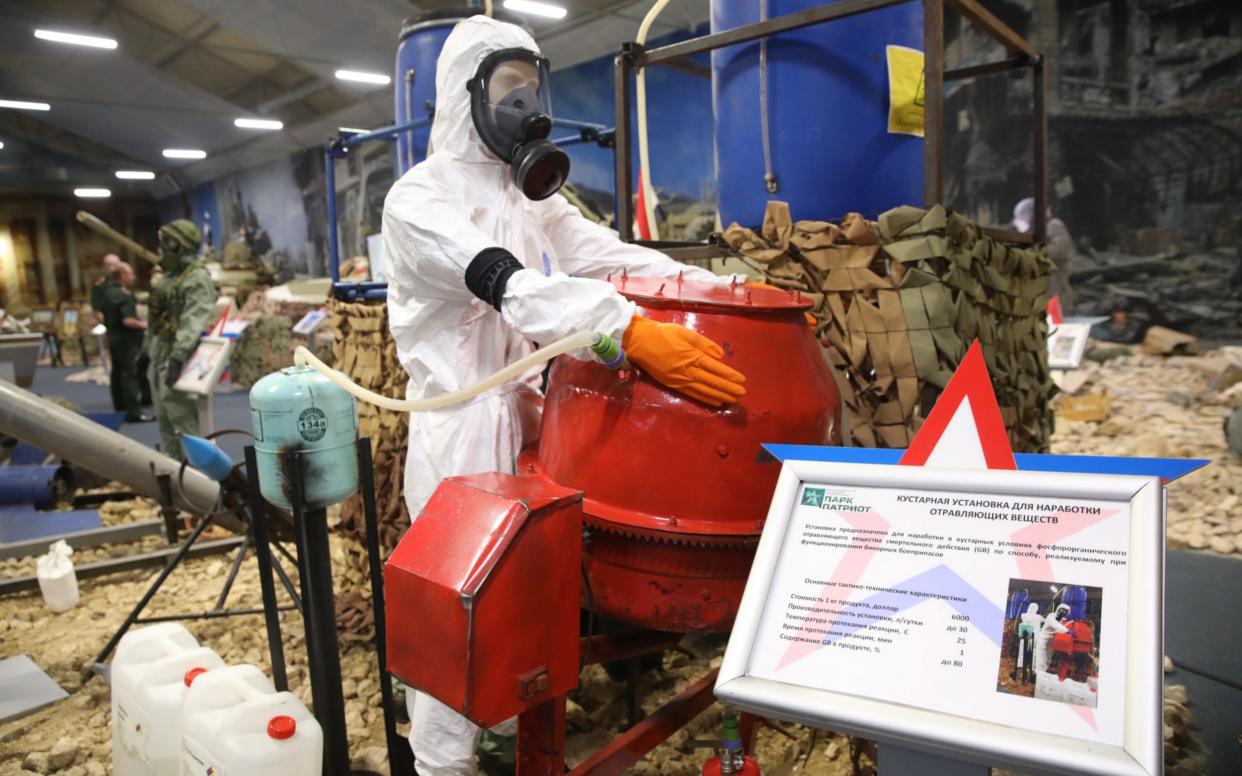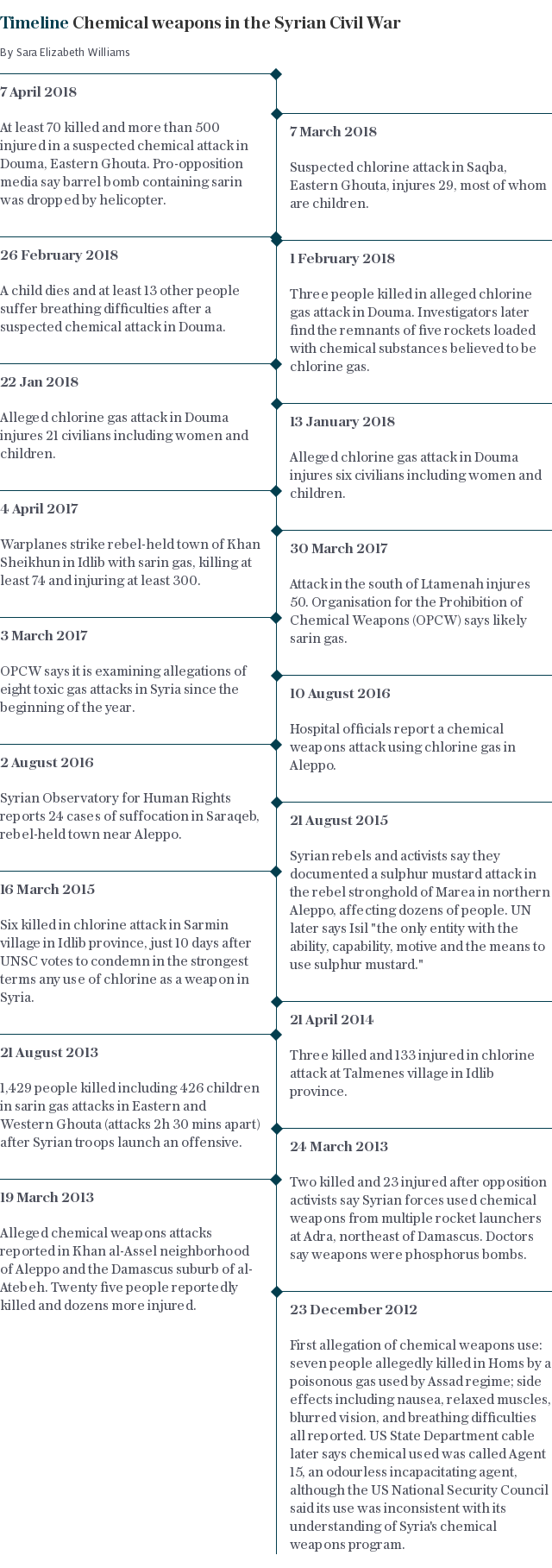Victory for Britain over Russia as inspectors could get power to blame states for chemical attacks

Britain is poised to score a major diplomatic victory over Russia next week that will enable international weapons inspectors to point the finger of blame at states who use chemical weapons, The Telegraph can reveal.
The move will come at an emergency summit of the Organisation for the Prohibition of Chemical Weapons (OPCW) in the Hague which was convened at the UK’s request last month following a resurgence in the use of chemical weapons in recent years.
At present, chemical weapons inspectors are only able to determine if chemical weapons have been used, but not pass judgment on which government or entity was responsible for using them, even if the evidence is clear.
Attempts by Western powers to create an international “attribution mechanism” at the UN level have been repeatedly blocked by Russia wielding its Security Council veto, leaving the international inspections regime toothless in the face of a growing number of violations.
These include multiple attacks in Syria where Russia is currently lending military support to the Assad regime. The most recent was in April 2018 when a chemical attack with barrel bombs in Douma dropped from Syrian regime helicopters provoked allied air-strikes.
North Korea is also accused of breaking the taboo over chemical weapons after agents used a VX nerve agent to assassinate the half-brother of North Korean leader Kim Jong-un, in Kuala Lumpur airport in February 2017.

The British decision to call a Special Conference of the OPCW came after a rare Novichok nerve agent was used in Salisbury in March in the attempted assassination of the former Russian agent Sergei Skripal - an attack the government unilaterally blamed on Moscow.
Syria, North Korea and Russia all deny carrying out these chemical attacks.
Recent attempts to get the OPCW to condemn Syria for using chemical weapons have failed to win enough support in the organisation’s 41-seat executive where 28 votes are needed to pass resolutions.
But Moscow now appears to have been outflanked after the UK succeeded in calling a “special conference” of the OPCW where the mechanism can be passed by a two-thirds majority of nations present.
Senior diplomatic sources said that nearly 90 of the OPCW’s nominal 193-country membership are expected to attend the summit on Tuesday and Wednesday next week, requiring around 60 to vote in favour of the British proposal.
UK sources said that Russia has done its level best to block the plan, calling on support from allies like Iran, Cuba and Venezuela, but that barring last-minute technical hitches with accreditation, there was “quiet confidence” the vote would now go through.

If successful, UK sources believe the move will be a major demonstration of international solidarity at a time when global institutions - from trade to climate change and the Nato alliance - face growing pressure.
As such, British diplomats working on the OPCW vote are at pains to say that it is not a “finger-pointing exercise” over Salisbury, but an effort to restore the health of the global multi-lateral system which is currently at risk of breaking down.
Russia has reacted angrily to the plans - which have been heavily backed by both Washington and Paris - accusing the west of “politicising” the OPCW, which is the enforcement body for the 1997 Chemical Weapons Convention.
Civil society groups are expected to welcome the vote, with Louis Charbonneau, UN director at Human Rights Watch, saying last month that it would be “a significant step forward” if it could be secured despite Russia’s repeated vetoes.

 Yahoo News
Yahoo News 
